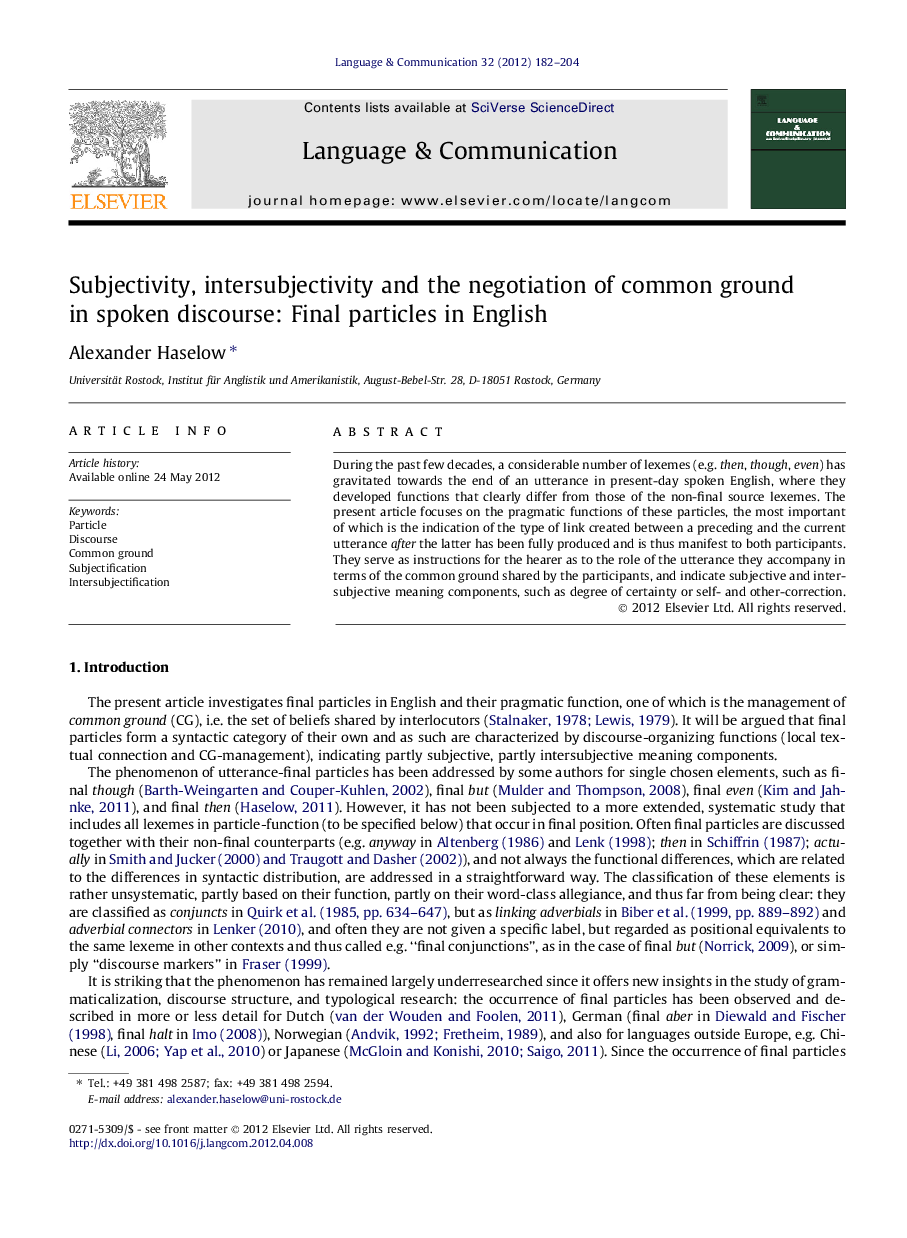| Article ID | Journal | Published Year | Pages | File Type |
|---|---|---|---|---|
| 934780 | Language & Communication | 2012 | 23 Pages |
During the past few decades, a considerable number of lexemes (e.g. then, though, even) has gravitated towards the end of an utterance in present-day spoken English, where they developed functions that clearly differ from those of the non-final source lexemes. The present article focuses on the pragmatic functions of these particles, the most important of which is the indication of the type of link created between a preceding and the current utterance after the latter has been fully produced and is thus manifest to both participants. They serve as instructions for the hearer as to the role of the utterance they accompany in terms of the common ground shared by the participants, and indicate subjective and intersubjective meaning components, such as degree of certainty or self- and other-correction.
► In spoken English, final particles are used for the management of common ground. ► They additionally express subjectivity and intersubjectivity in conversation. ► Final particles indicate relations between independent utterances and create cohesion. ► They form a paradigm with distinct grammatical and pragmatic properties.
